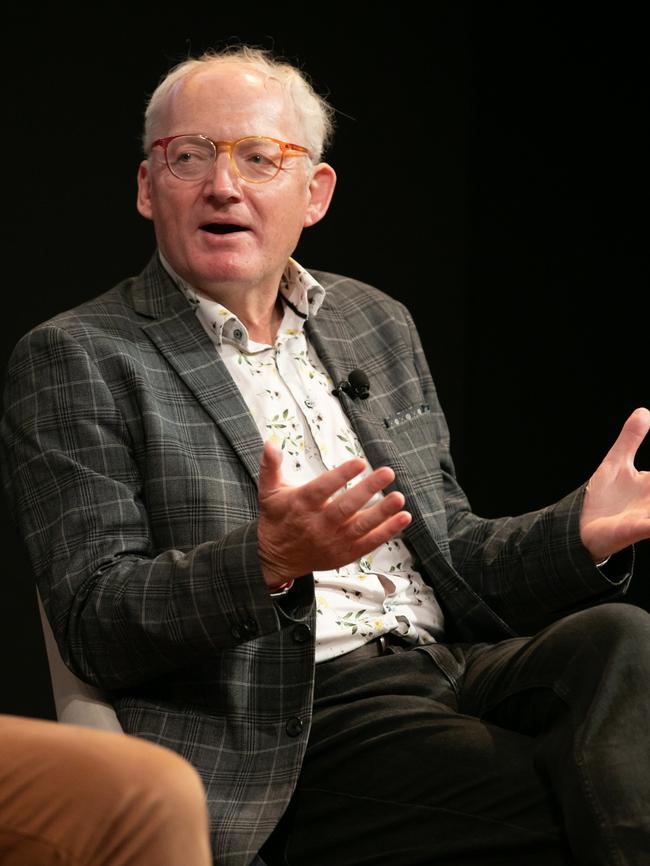AI no quick fix for productivity says Industry Minister Ed Husic
AI isn’t a quick fix for Australia’s productivity decline and most of the reports estimating its impact are ‘silly’, says Productivity Commissioner Stephen King.

Artificial intelligence is no quick fix for Australia’s productivity decline and most of the reports estimating its impact are “silly”.
That is according to Productivity Commissioner Stephen King, who on Tuesday said the “hype cycle” surrounding AI and the figures being thrown around estimating when the technology would improve productivity were coming far too soon.
“The potential benefits are significant, but I think we’re probably at the top of the hype cycle where people are coming out with numbers that are way too silly and way too short,” he said.
Mr King’s view was shared by many at the AI Summit in Sydney on Tuesday, including Industry and Science Minister Ed Husic, who said while the nation needed to embrace technology to improve productivity, people couldn’t just “plug in the technology and make it all work”.
“You need to think through the process itself. To see that productivity lift, it’s not going to happen through a click of the fingers, it is going to involve a range of us working together on that to make that happen,” he said.

Mr Husic made the comments as he announced the government’s National Robotics Strategy, which he said he hoped would result in Australia finally competing with countries including Japan, the US and Germany.
While touring manufacturing facilities across the nation, what had become a familiar sight in recent years were robotic devices made from the likes of Germany, Italy, France, or the Netherlands, Mr Husic said. “There are many developed countries manufacturing robotics and automation and then selling them to countries like ours,” he said.
“There is no reason that automated technologies can’t be made in this nation and then sold to the rest of the world, but we’ve not only been slow to adopt robotics but equally slow to acknowledge our underlying strengths.”
Australia’s view on robotics and AI needed to be addressed immediately, and the country needed to change its thinking so “that it doesn’t rely on another country to complete an idea that began in Australia”.
“We’ve not only been slow to adopt robotics, we’ve been equally slow to acknowledge our underlying strengths. We ranked 32nd for the adoption of industrial robotics but we’re in the top 10 when it comes to research,” he said.
Mr Husic said the nation’s productivity had “slumped”, with the Treasury having observed it in 2023 at its lowest level in 60 years at 1.2 per cent.
That needed to be turned around after “a decade of disinterest in Australian manufacturing”, he said. “Even a 1 per cent increase in robotics could lift the whole economy’s productivity by 0.8 per cent,” he said.
Suncorp chief information officer Adam Bennett was similarly both optimistic and pessimistic about AI being linked to productivity. “There’s always been this promise that technology is going to be the magic formula to drive the productivity opportunity for the country,” he said.

“There is undoubtedly a productivity uplift that can be achieved through the use of AI but when you aggregate that up at a whole economy level, there just seems to be a lot of other preconditions for that to be achieved.”
One of Australia’s leading experts on AI, Toby Walsh, said the over-promises made by AI companies had been happening for decades.
“In 1956, when they held the first AI Workshop, they said over the course of the summer they will make significant progress in solving AI, which of course they didn’t solve over the course of the summer of 1956. Seventy years later, we’re still trying to solve it,” Professor Walsh said.
He said while there may be a lot of overpromises made in the short term, ultimately AI would reach a point where the benefits were unquestionable. “In terms of the opportunity, I think in the short term over-promising but in the long term we will be over-delivering – it will be a remarkably different world,” he said.
AI then delivered an entirely different problem.
“The problem isn’t one of productivity, the problem is distribution,” Professor Walsh said.
“Will those gains be meaningfully shared among us all or will they be owned by just a few companies?”
AI had also brought about some changes to the “narrative” of which kind of jobs would first be replaced by technology.
“AI got such a buzz recently because us white collar people realise that maybe the narrative was the other way around – that we were the ones who were replaceable,” Professor Walsh said.
He said warehouses were “built for robots, which is good”.
Professor Walsh said many blue-collar jobs such as plumbing were difficult and would require an incredibly expensive robot.
“From a business perspective, a more useful capability, much more practical capability that these AI tools are perfect at summarising and synthesising information, which is what many of us (knowledge workers) do.”






